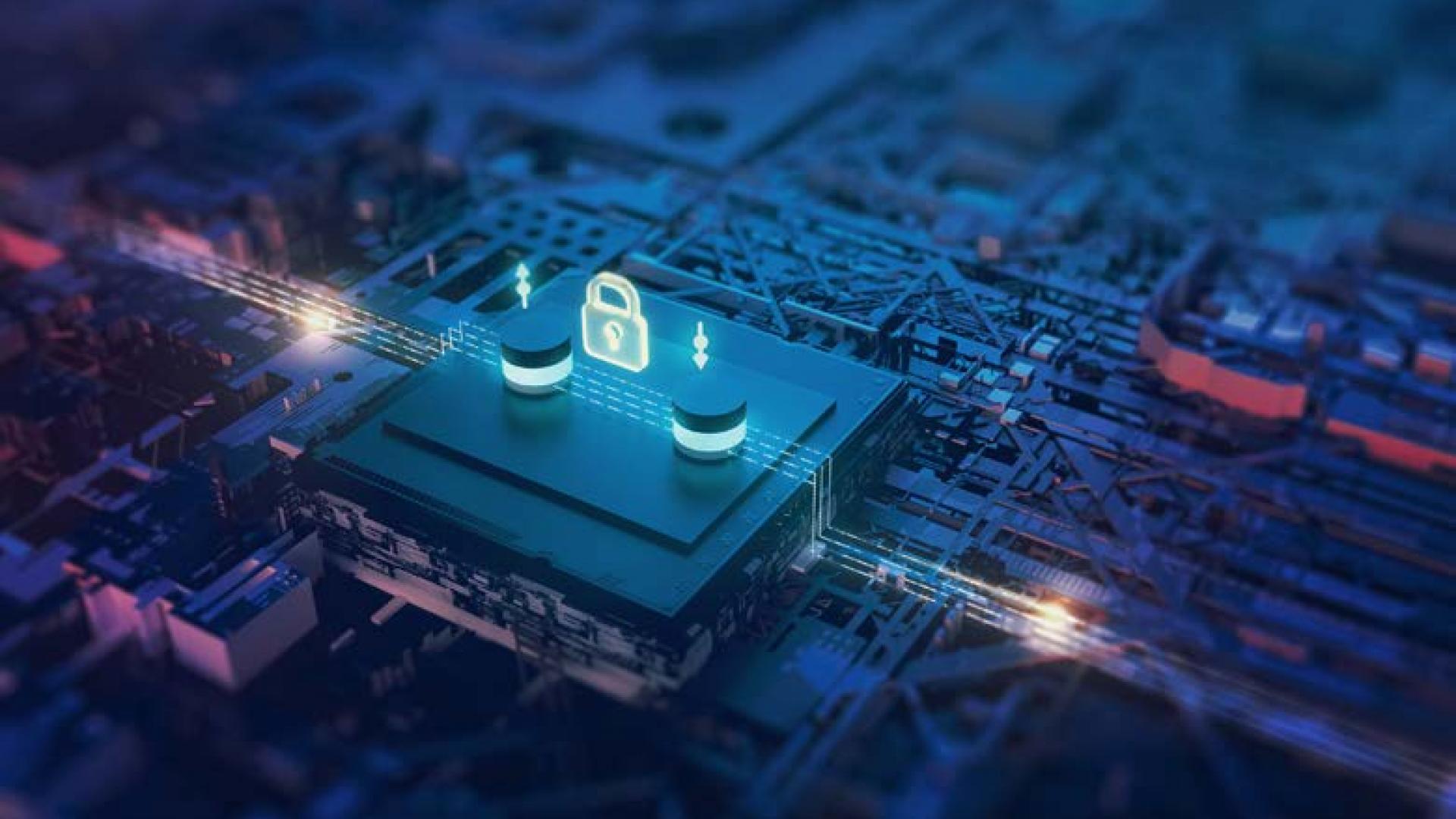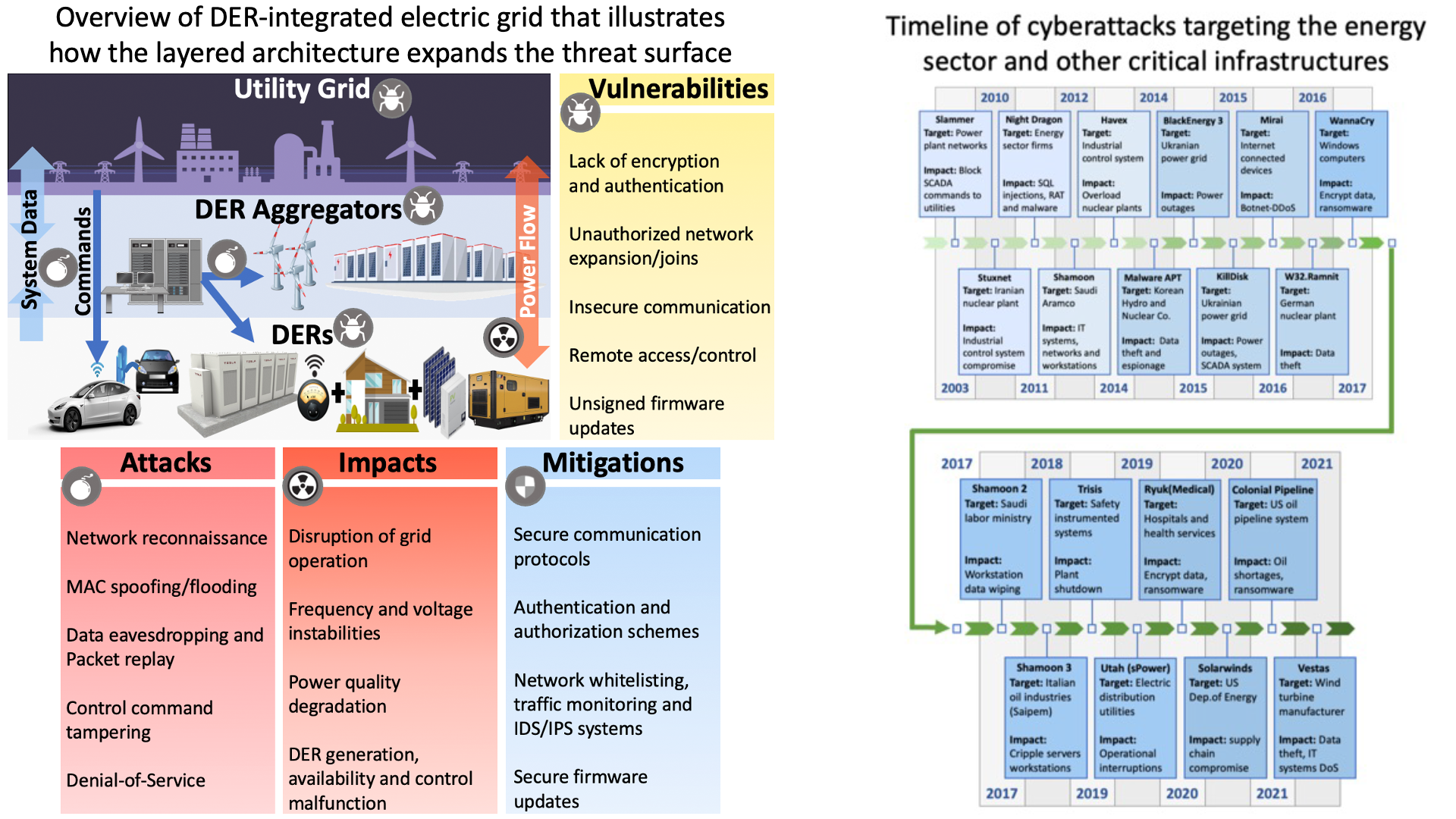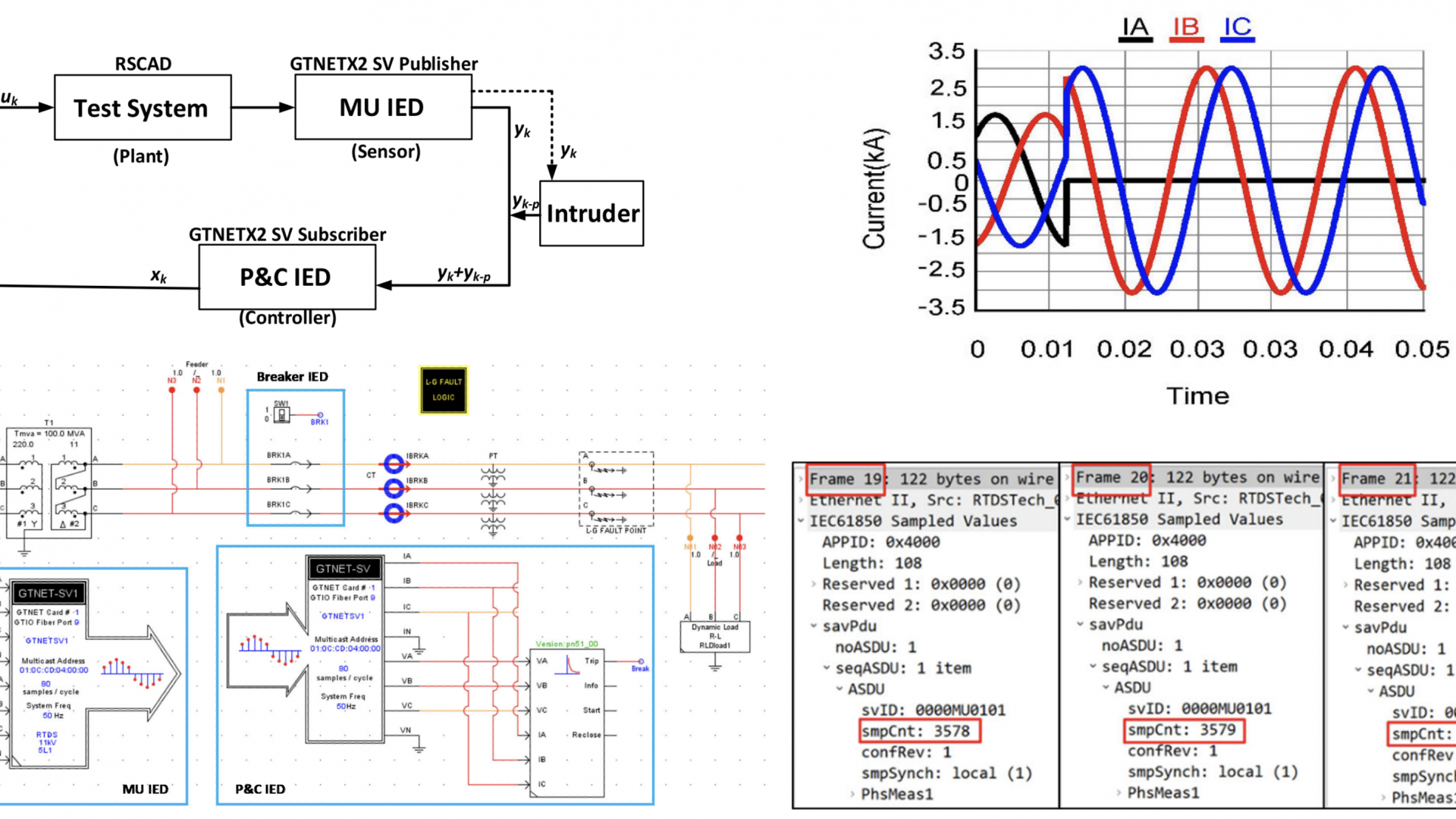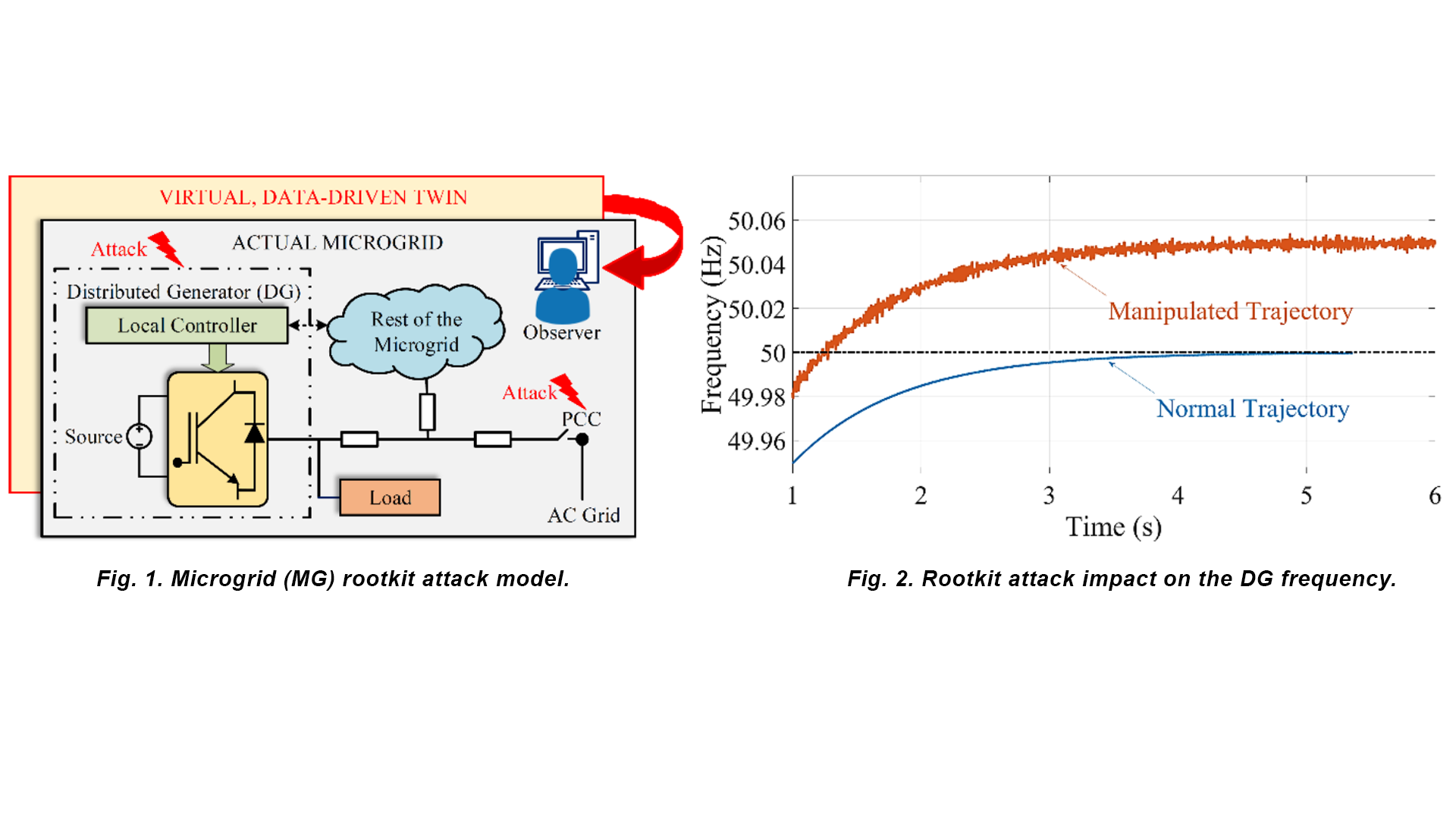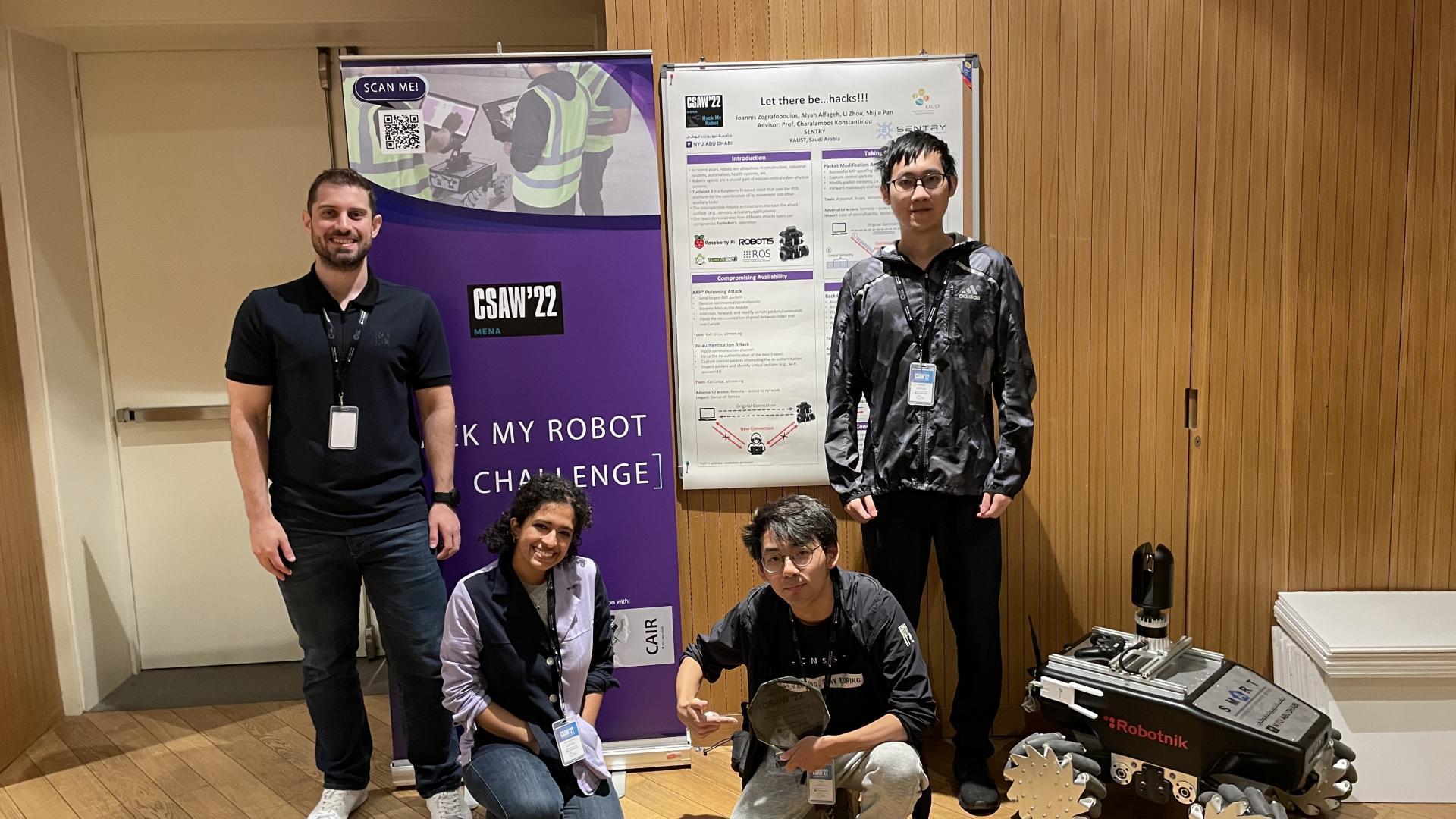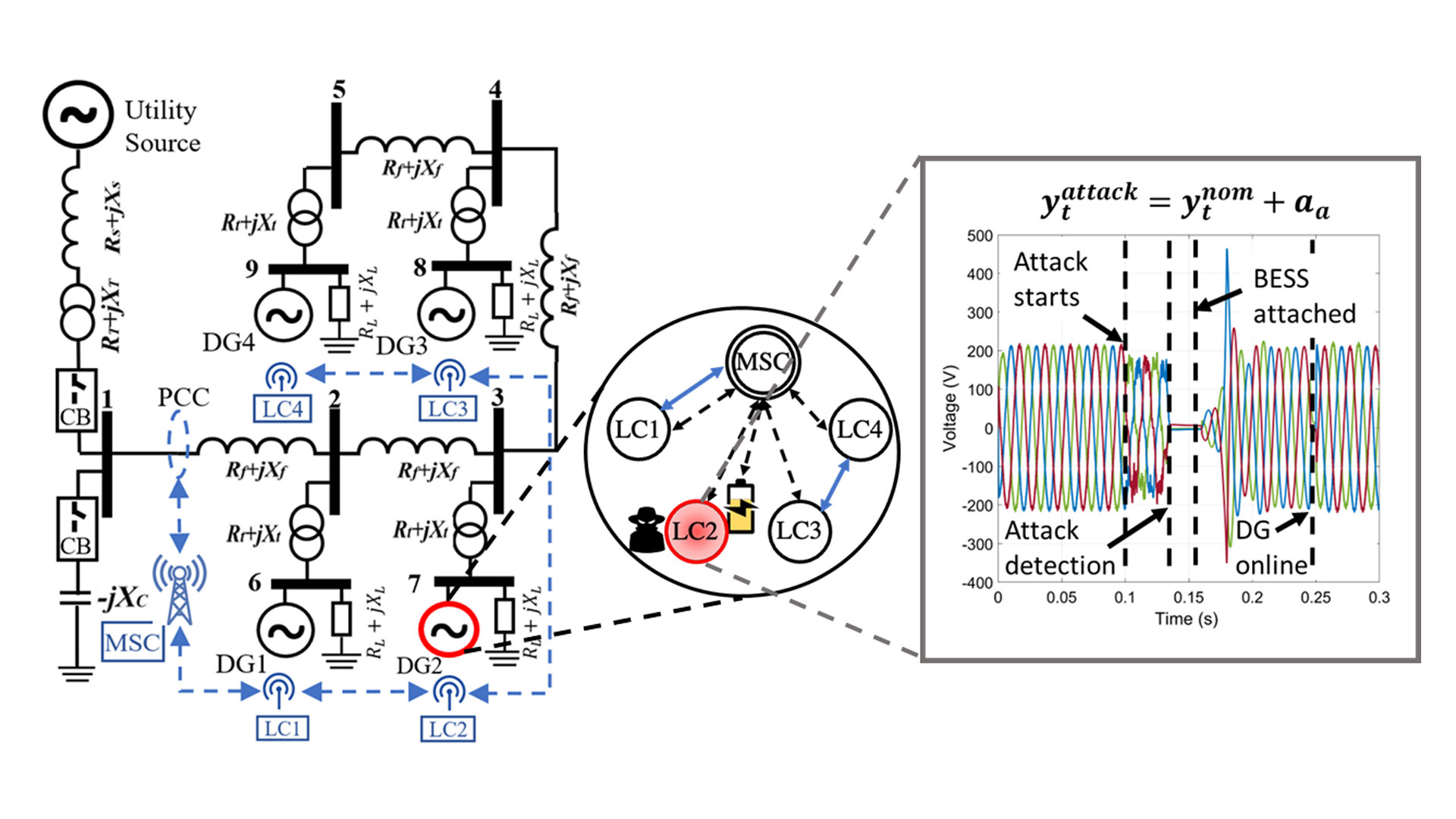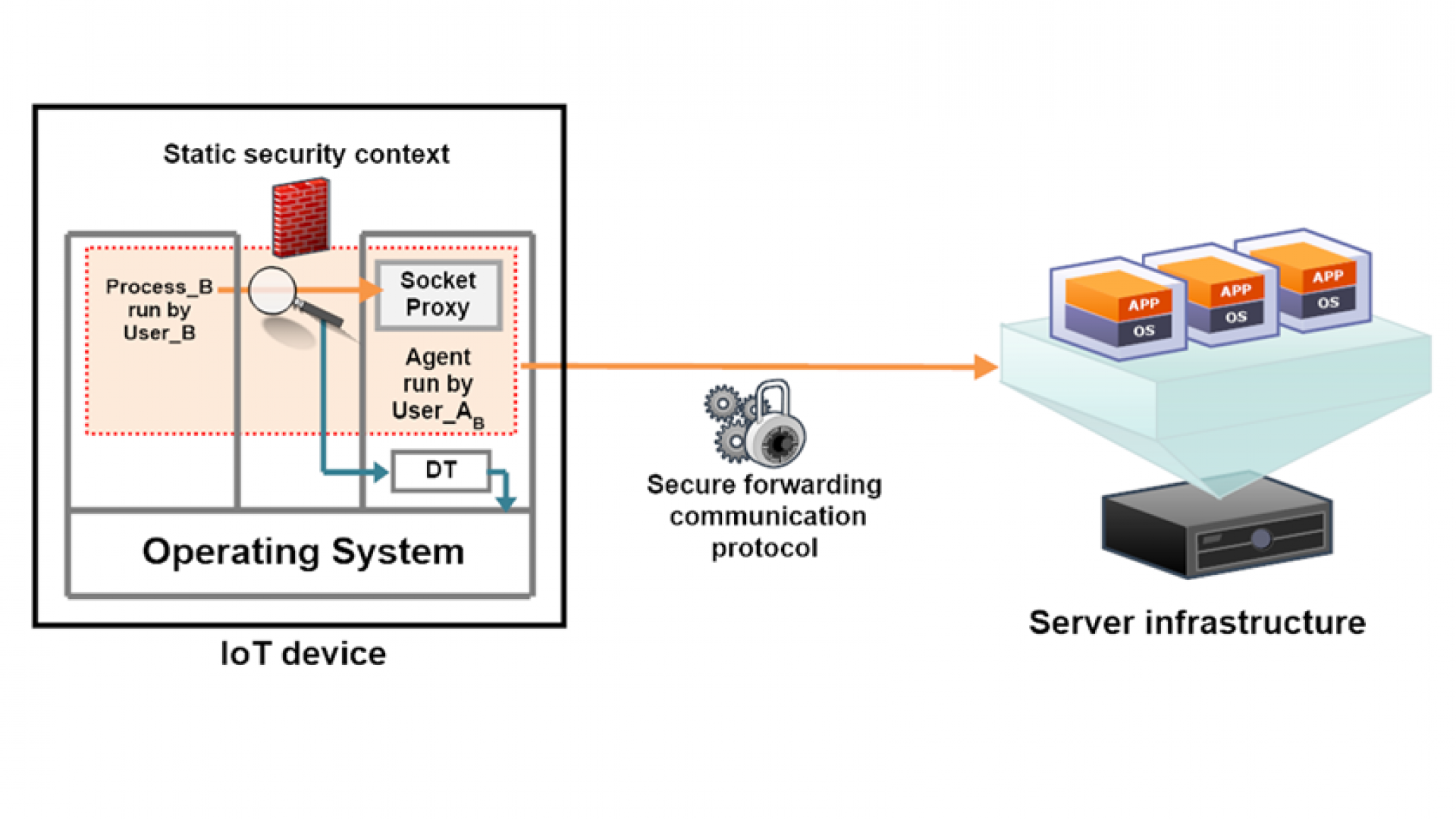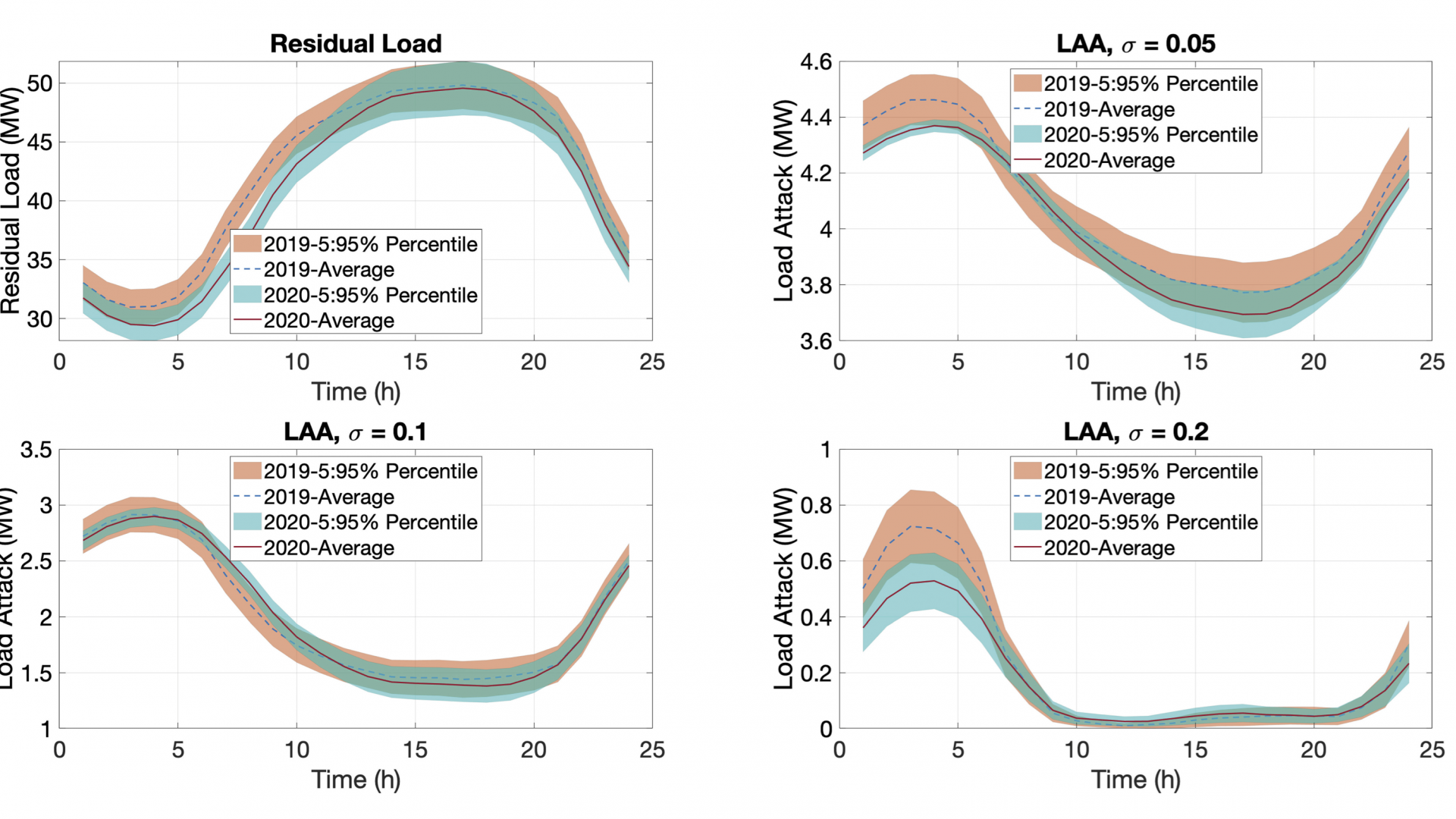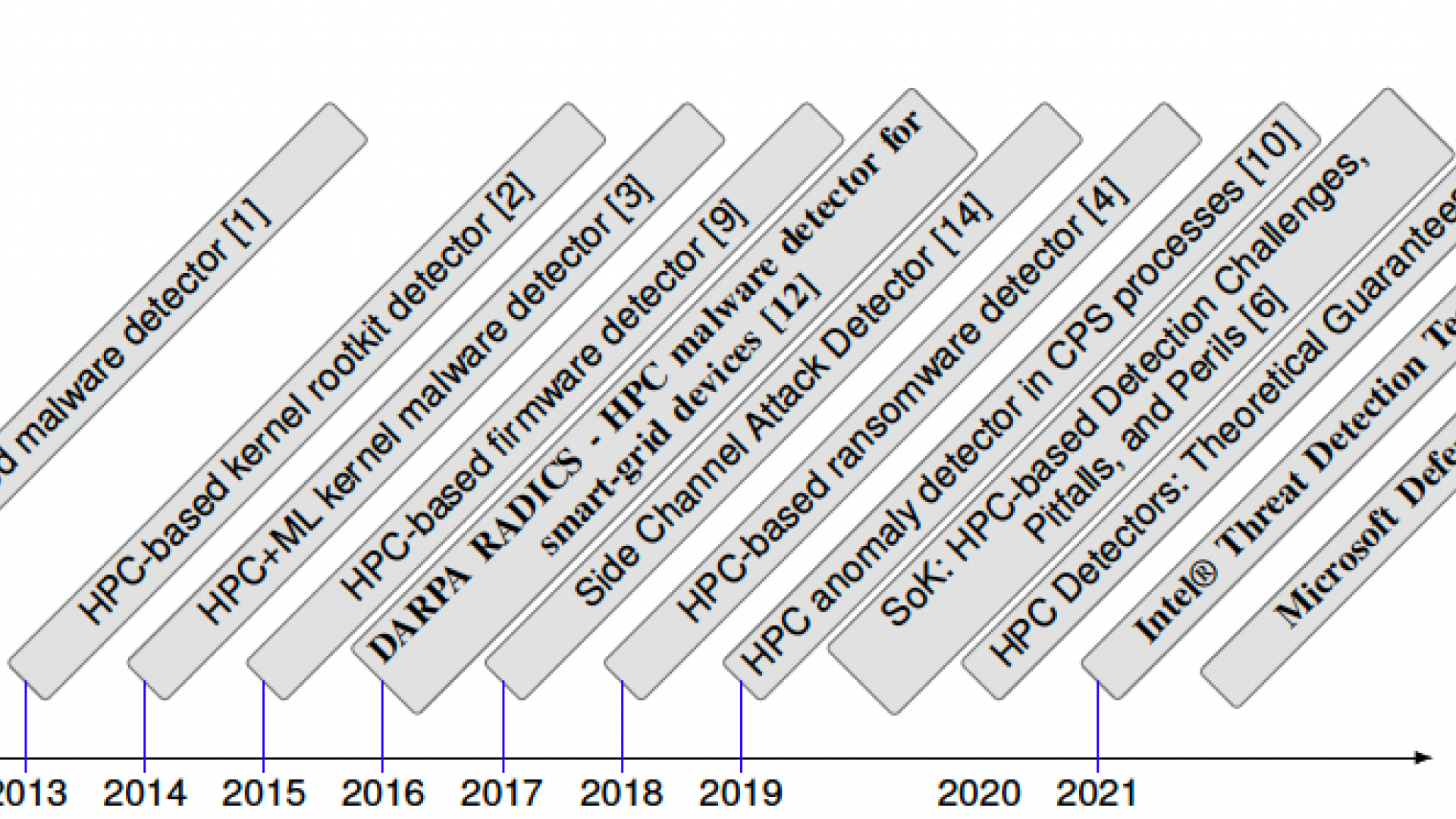The digitization and decentralization of the electric power grid represent crucial steps toward achieving both economic and environmental sustainability.
An Effective Security Scheme for Attacks on Sample Value Messages in IEC 61850 Automated Substations
The trend of transforming substations into smart automated facilities has led to their swift digitalization and automation. To facilitate data exchange among equipment within these substations, the IEC 61850 standard has become the predominant standard.
Mitigation of Cyberattacks through Battery Storage for Stable Microgrid Operation:
Technology and innovation are in constant evolution providing new services, products and solutions at the swiftest pace in human history. Progress and competitiveness incentivize businesses to pursue a continuous improvement that we expect will benefit society as a whole.
Load-Altering Attacks Against Power Grids under COVID-19 Low-Inertia Conditions: The COVID-19 pandemic has impacted our society by forcing shutdowns and shifting the way people interacted worldwide. In relation to the impacts on the electric grid, it created a significant decrease in energy demands across the globe.
Power grids have become far more complex in recent decades due to energy demands, environmental regulations and small-scale renewable energy systems that turn businesses and individuals into combined consumer-producers. One way to ensure that power supplies remain resilient is to create small groups of sources and loads called microgrids.
HPC-based Malware Detectors Actually Work: Transition to Practice After a Decade of Research: Our recent work has come out as the result of our research on HPC (hardware performance counters) security in the last decade. During this time, HPC-based malware detection transitioned from academic research through government transition to industry adoption.
With the advancement of Internet-of-Things (IoT) technology, embedded devices have increasingly permeated our daily lives. Such devices allow physical objects to become integrable with information. As a result, embedded devices are increasingly interdependent and, in many cases, important to our safety.

